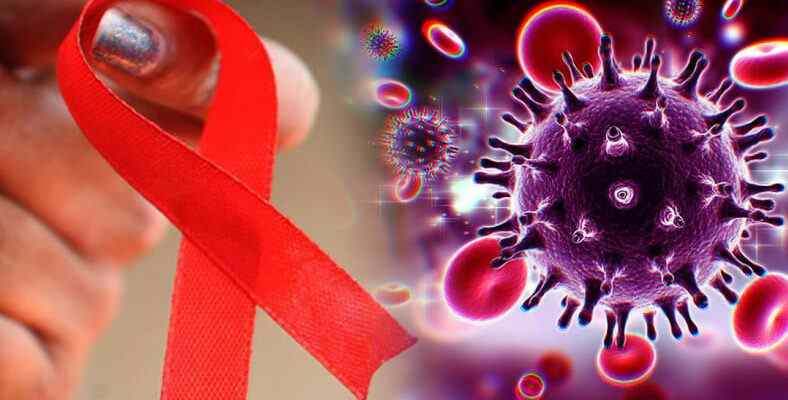Before December 1, World AIDS Day, it was announced how many people in Turkey were infected with HIV. According to official records obtained from the Ministry of Health, 32 thousand 376 people are living with HIV by the end of 2021. Experts add that those who do not know about the disease think that there are quite a lot of people, so they estimate that this number may be around 65-70 thousand.
First seen in the 1980s HIVAfterwards, it became an epidemic and managed to affect the whole world. Virus seen in millions of people, to AIDS causing many people to die. Although vaccine and treatment studies have made great progress, the disease still has not been solved on a large scale.
Now, the information received has revealed the situation of HIV in our country. According to Haber Global, Turkish Society of Clinical Microbiology and Infectious Diseases HIV/AIDS Working Group President prof. Dr. Halis Akalinmaking statements before the 1 December World AIDS Day, brought together the data in Turkey with us.
It is thought that 65-70 thousand people in Turkey are living with HIV.
Akalın stated that AIDS, which stands for ‘Acquired Immunodeficiency Syndrome’, was defined in 1981 and has become a pandemic and continues today. An estimated 38.4 million people living with HIV infection worldwide emphasized that. While it was stated in the statements that approximately 40 million people lost their lives from AIDS or AIDS-related opportunistic infections and cancers to date, it was added that 650 thousand people lost their lives in 2021 due to AIDS and AIDS-related complications.
Mentioning the data in our country, Akalın said that according to the official records obtained from the Ministry of Health at the end of 2021, 32 thousand 376 people, 26 thousand of whom are men, are infected with HIV. He recorded that he lived. Stating that there is a high probability that there are people who do not know the disease, the professor also drew attention to the fact that they estimate that there are around 65-70 thousand people living with HIV in Turkey.
In addition to these, Akalın spoke about the age distribution of people with HIV in our country. According to this, between the ages of 20-45 is the most intense range of people living with the virus. Talking about the reasons for the decline of people with HIV who entered the official records, Akalın said that this was due to the negative impact of testing opportunities from the COVID-19 epidemic, and that the numbers will increase in 2023. return to normal He added that they were waiting.
What is the difference between HIV and AIDS? Does everyone with HIV die?

HIV infection and AIDS it’s not the sameWe have to add that not all HIV-positive people die and not all HIV-positive people have AIDS. HIV, which stands for ‘Human Immunodeficiency Virus’; weakens the immune system cells in humans and therefore HIV infections occur.
Infections if it progresses AIDS can also occur, which is deadly. A person with HIV can significantly reduce the risk of AIDS if they take antiretroviral (ARV) drugs without interruption. The fact that more than 38 million people in the world live with HIV reveals this difference.
prof. Dr. Halis Akalın also states that after HIV enters the body, it follows the acute period, which is like an upper respiratory infection, and the chronic infection period. Stating that diseases such as recurrent fungal infections in the mouth and night burns may occur in this process, Akalın says that after the virus enters the body, it directly or indirectly damages the immune system cells over time, and AIDS begins when the number of these cells falls below a certain rate. If HIV infection is not treated in time in 8-10 years He adds that this period has been reached.
There are many more well-known misconceptions about HIV and AIDS. The transmission of the disease through actions such as sitting next to each other, touching, or the fact that it usually affects gay men are just a few of them. If you want to get information about the truth of such false information, you can take a look at our content below.
RELATED NEWS
It’s Not Spread by Kissing: 6 Misconceptions About HIV and AIDS You Need to Know the Truth Immediately
How is HIV transmitted? What should we do to be protected?

To put it simply, the virus; such as blood, semen, vaginal fluids, anal fluids, and breast milk to body fluids transmitted through contact. In addition, procedures such as organ transplantation can also transmit HIV. HIV is the most common sexual contact or sharing the same injector Let’s add that it spreads as a result. In addition, it is possible for mothers living with HIV to transmit the virus to their babies.
So what do we need to do to be protected? Considering that it is most commonly transmitted by sexual contact ways like condoms We can say that it is a great weapon to protect from HIV. of course avoiding unprotected sexual contact also needed. Moreover using disposable syringes and avoiding the use of common syringes, using screened blood and blood products Things like this are among the ways to protect yourself from the virus.
Prevention of transmission from pregnant to baby if for appropriate treatment and follow-up, cesarean delivery, drug treatment from birth to mother and baby after birth, not breastfeeding the baby by the mother applications such as Experts also underline that more awareness of people is needed to prevent the increase in the spread of the virus.
RELATED NEWS
What You Should Know About the ‘HSV Virus’, which is transmitted sexually and affects your life at least as much as HPV
Source :
https://haberglobal.com.tr/saglik/resmi-kayitlara-gore-turkiyede-32-bin-376-kisi-hivaids-ile-yasiyor-216517
